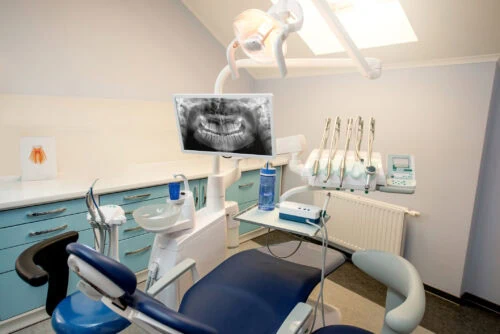Introduction
Welcome to the guide created specifically for those stepping into the professional world. Whether fresh out of school or making a career transition, understanding the fundamentals of career and professional development is crucial. This guide is a roadmap to help you navigate the challenging landscape of modern workplaces, equipping you with the knowledge and tools necessary for success.
Begin this journey of career exploration and growth with confidence. We will cover everything from setting realistic goals and enhancing your skills to mastering job applications and balancing your professional and personal life. Get ready to transform challenges into stepping stones towards your dream career.
Read on to discover how to lay a strong foundation for a successful professional life.
Understanding Career and Professional Development
Career and professional development involves lifelong learning, networking, and career planning. It aims to enhance job performance, fulfillment, and growth. Often, this growth is not just a response to the changing landscape of industries but a proactive way to stay relevant.
Key Components:
- Continuous Learning: Always seeking new knowledge and skills.
- Networking: Building professional relationships that open new career pathways.
- Strategic Planning: Setting short-term and long-term career objectives.
Professionals need to gauge market demands and upcoming industry trends. This helps them prioritize which skills to learn and when. Also, career and professional development aren’t just about climbing up the career ladder. They’re significantly focused on personal growth and happiness.
Many professionals turn to resources like the 20 common interview questions to better prepare themselves for job changes that align with their career goals. Institutions such as Harvard University provide resources and courses that can catalyze career and professional development.
Career and professional development are significant aspects of personal fulfillment. As you grow and adapt, your career path may evolve in exciting and unexpected ways, making the journey as rewarding as the destination.
Setting Career Goals: A Crucial Step
Setting concrete career goals is vital in the career and professional development journey. Goals provide a roadmap, guiding your actions and decisions towards achieving professional excellence and personal satisfaction.
How to Set Effective Career Goals:
- Specificity: Define clear, specific objectives rather than vague ambitions.
- Measurability: Establish criteria for measuring progress towards each goal.
- Achievability: Ensure that your goals are realistic and attainable within a given timeframe.
- Relevance: Align your goals with your personal values and long-term career aspirations.
- Time-bound: Set deadlines to keep yourself accountable and motivated.
For example, instead of a general goal like “get better at my job,” a more effective goal would be “gain proficiency in data analysis by completing an online course and applying these skills to current project metrics by Q3.”
Achieving these goals often requires enhancing your qualifications and skills. Many turn to educational resources, such as effective resume writing tips, to improve their chances of landing desired positions. External resources like Udemy offer courses that can help sharpen your skills in a specific area.
By setting and pursuing well-defined career goals, you create a sense of purpose in your professional life and consistently progress towards your ideal career state.
Enhancing Skills Through Education and Training
Education and training are an important part of career and professional development. They provide the foundation and tools needed for career advancement.
Advantages of Continuous Education:
- Staying Updated: This keeps you aware of the latest industry practices and technologies.
- Competitive Edge: Enhances your resume, making you a more attractive candidate.
- Increased Earning Potential: Often, higher skills correlate with higher income.
Obtaining new certifications or degrees can be impactful, and attending workshops and online webinars offers substantial value. Additionally, edX provides access to courses from universities worldwide, supporting your educational needs across various subjects.
Training programs specific to certain skills or industries can be extremely beneficial. These often lead to direct improvements in your job performance and career prospects. Thus, both formal education and informal training are essential for career growth.
Investing in your education is invariably investing in your future. Therefore, reflecting on your career goals yearly helps you identify what educational paths to pursue next.
Networking and Building Relationships
Networking is crucial in career and professional development. It opens doors to new opportunities and insights.
Effective Networking Strategies:
- Attending Industry Events: Conferences and seminars are great for meeting peers.
- Active Online Presence: Engage on professional platforms like LinkedIn.
- Mentorship: Seek mentors and offer to mentor others.
Creating authentic relationships within your network can lead to mentorship, partnerships, or job offers. Platforms like LinkedIn facilitate these connections digitally, extending your reach beyond local events.
Additionally, don’t overlook the power of informal gatherings or online forums related to your field. These can be surprising sources of valuable contacts and, sometimes, lifelong friendships.
Remember that networking is a two-way street. Always consider how you can add value to others as you expand your career and professional development.
Preparing for Interviews
Effectively preparing for interviews is a critical aspect of the career and professional development journey. Being well-prepared boosts confidence and increases your chances of success.
Tips for Interview Preparation:
- Research the Company: Understand its culture, mission, and industry standing.
- Practice Common Questions: Familiarize yourself with typical interview scenarios.
- Plan Your Journey: Ensure you know where you’re going and how long it takes to get there.
Also, consider preparing questions to ask the interviewer. This shows your interest in the role and helps you determine whether the company fits your career goals.
Reviewing Bureau of Labor Statistics data to understand industry standards and trends is helpful. Knowing the sector well can give you an edge in discussions.
Remember, the goal is to show why you’re the right fit for the job and the company. Thus, detailed preparation is key.
Crafting a Winning Resume
A well-crafted resume is a fundamental tool in career and professional development, acting as your first impression to potential employers.
Key Elements of an Effective Resume:
- Clarity and Conciseness: Keep your resume clear and to the point.
- Relevance: Tailor your resume to the job description.
- Impactful Language: Use action verbs and quantify achievements where possible.
Include precise examples of how you added value in your previous roles to stand out. Use templates and guidance to ensure your resume meets professional standards. Check out our Resume Template page to help get you started.
Ultimately, your resume should showcase your skills and experiences and mirror your understanding of the role and industry you are applying to. This reflection greatly enhances your application’s impact.
Navigating Job Offers and Negotiations
Successfully navigating job offers and negotiations is crucial in advancing your career and professional development.
Strategies for Handling Job Offers:
- Evaluate the Offer: Consider all aspects, including salary, benefits, and work-life balance.
- Negotiate: Discuss terms confidently if the initial offer doesn’t meet your expectations.
- Be Professional: Always communicate your decisions politely and professionally.
Taking the time to review and negotiate your job offers can lead to better career satisfaction and growth. To better understand these processes, utilize resources like the guide on handling job offers.
You should also consider external advice from experts on reputable sites like SHRM (Society for Human Resource Management), which can provide vital insights into employment negotiation strategies.
By preparing well for this phase, you can ensure that your career moves align with your long-term professional goals.
Maintaining a Work-Life Balance
Maintaining a healthy work-life balance is essential for sustainable career and professional development.
Benefits of Work-Life Balance:
- Improved Health: Reduces stress and increases overall well-being.
- Enhanced Productivity: Balanced individuals often perform better at work.
- Greater Job Satisfaction: This leads to a more positive attitude toward work.
To achieve this balance, prioritize tasks effectively and set clear boundaries between work and personal life.
If available, flexible working options should be considered. These arrangements can provide the space needed to manage personal and professional responsibilities.
By carefully managing your time, you can excel in your career while enjoying a fulfilling personal life.
FAQs
How often should I review my career goals?
Reviewing and adjusting your career goals annually to stay aligned with evolving industry trends and personal aspirations is beneficial.
What’s the best way to find networking opportunities?
Explore professional associations, online platforms, and community events related to your industry. These are excellent for making new connections.
How can I differentiate myself in competitive job markets?
Focus on building unique skill sets, earning relevant certifications, and developing a strong personal brand through consistent career-building activities.
Is it necessary to change jobs to develop my career?
Not necessarily. You can advance in your current role by taking on new projects, responsibilities, or learning opportunities contributing to your growth.
What are some signs that I’m achieving a good work-life balance?
Signs include having enough time for personal interests and family, feeling generally happy and less stressed, and maintaining productivity at work.
Conclusion
Career and professional development are essential for achieving personal and professional fulfillment. By setting clear goals, continuously enhancing skills, and maintaining valuable networks, you can effectively navigate the complexities of modern career paths. Remember, the route to professional success isn’t always linear, but adapting to changes and seeking growth opportunities can lead you to remarkable places in your career.
If you want to advance your career prospects and embrace workplace diversity, consider joining Diversity Employment. Our diversity job board platform offers a wealth of resources and a supportive community to help you thrive in a diverse professional environment.
Take the initiative today. Join Diversity Employment and propel your career forward with us.




